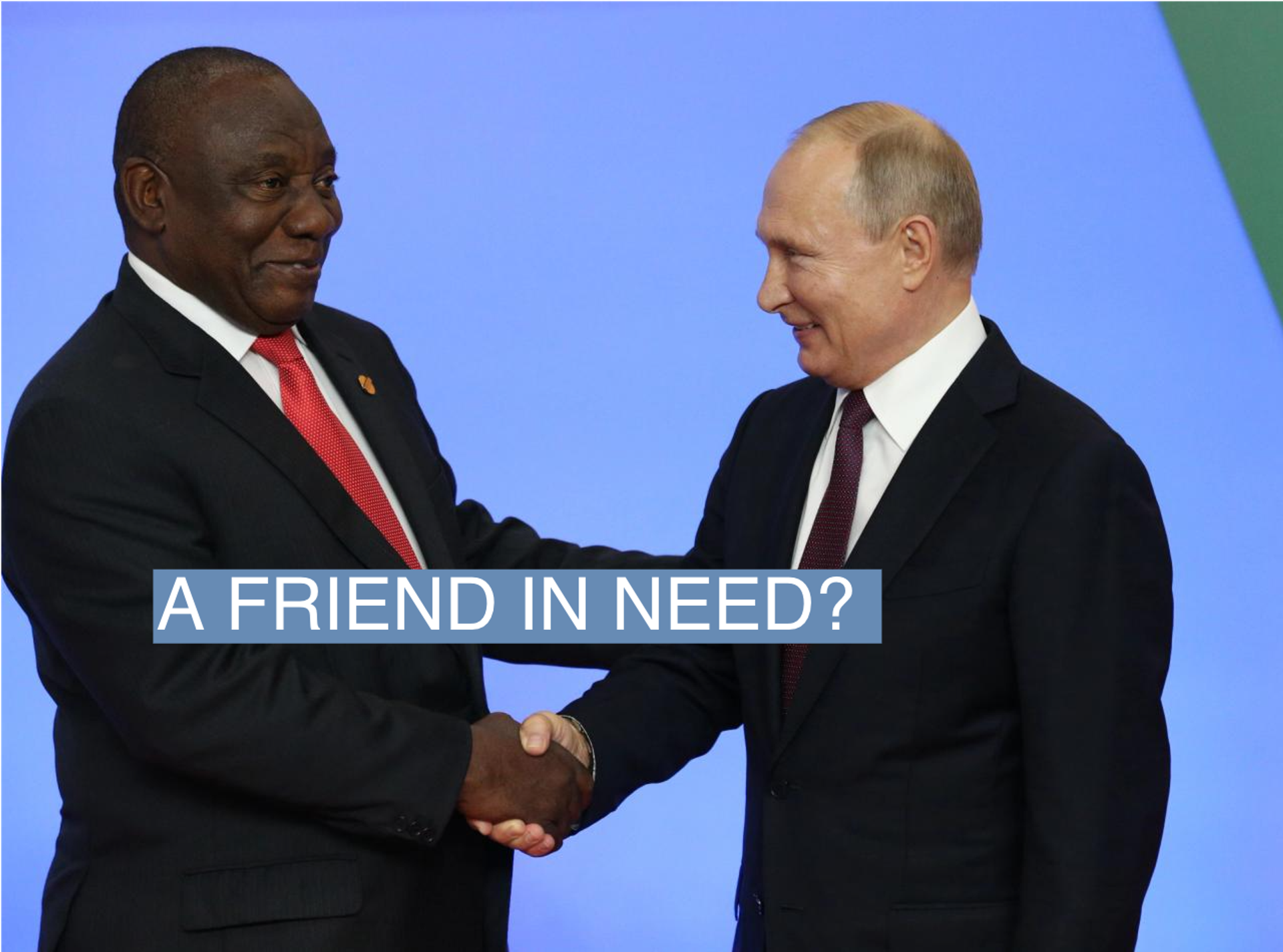The News
JOHANNESBURG — South Africa’s government is frantically working on a plan to dissuade Russian President Vladimir Putin from visiting Johannesburg to avoid making the decision of whether to arrest him.
The International Criminal Court issued a warrant for Putin’s arrest in March for alleged war crimes in Ukraine. South Africa is hosting a summit of the BRICS group of nations (Brazil, Russia, India, China, and South Africa) in August, and Putin is invited. The Kremlin says it’s still considering whether he’ll attend.
South Africa’s President Cyril Ramaphosa on Tuesday sparked an uproar when he said he wanted to pull his country out of the ICC — a move widely seen as a bid to avoid having to arrest a close ally. But within hours the ruling African National Congress walked that statement back. Two government officials told Semafor Africa that Ramaphosa had misread a note prepared following a three-day deliberation with other senior party members.
Instead, the government is working on a plan to request that Putin attends the summit virtually or to send his foreign minister Sergei Lavrov instead, the two officials said.
South Africa’s government did not respond to requests for comment.
Know More
South Africa is a signatory of the Rome Statute and a member of the ICC. That means the country would be theoretically obligated to arrest the Russian president if he touched down in the country.
It is not the first time South Africa has faced international pressure over an ICC arrest warrant. In 2015, the court instructed the government to ensure the arrest of Sudan’s then-president Omar al-Bashir. He evaded arrest by leaving South Africa before authorities could act on the court’s instruction.
Sam’s view
Cyril Ramaphosa’s gaffe was the clearest public sign yet of the panic that’s gripped his government over the Putin problem. He and his government are desperate to resolve the situation without having to arrest the Russian president — a no-win situation whatever he does: arrest the head of a friendly power, or harm relations with the West.
The issue was discussed at length throughout the three-day meeting of the governing party’s National Executive Committee, according to three attendees who said leaving the ICC was debated but rejected. A briefing note from the meeting — which two government sources say Ramaphosa misunderstood — highlights the detailed discussions taking place to avert what ministers fear could turn into a diplomatic disaster, as well as confusion over the best course of action.
South Africa’s relationship with Russia has been a stress point since the start of the war in Ukraine. Pretoria’s relationship with Moscow is complicated. South Africa has not forgotten help received from the Soviet Union in the fight against apartheid and is at pains to remain on good terms with a powerful ally in the BRICS group of nations who seek to provide a viable alternative to Western dominance in international relations.
Russia, which is vying with the U.S. and China for influence across Africa, has also shown that it is keen to maintain strong ties with the continent’s most developed economy. In a diplomatic coup for Moscow, South Africa hosted joint naval exercises with Russia and China in February. The show of strength reinforced the sense of a growing alliance of non-Western powers.
Room for Disagreement
Sanusha Naidu, a senior research fellow at the Institute for Global Dialogue think tank in Pretoria, said there was no need to focus on the issue of Putin’s attendance at the BRICS meeting because his arrest was unthinkable.
“Even if Putin comes, who dares go and arrest him? It would have to be a citizen’s arrest, as no official would be brave enough,” she said. “Even the NGOs will hide behind the courts, but no one will want to carry out the actual arrest.”
The View From Russia
Russia is yet to make a final decision on how it will approach the BRICS summit, according to the Kremlin. “The relevant decisions will be made closer to the date. But in any case, Russia will take an active part in this,” Kremlin Spokesman Dmitry Peskov told a press conference on Monday.
While South Africa finds itself in an uncomfortable position, the possibility that Putin might not be able to travel to South Africa in person would be a “serious blow” for the Russian president, said Stanislav Kucher, a political analyst at Samizdat Online.
The BRICS summit is expected to discuss a possible expansion to add up to 13 countries including Indonesia, Algeria and Egypt, to create a much larger organization that would be a counterbalance to the G7 and the dominance of developed countries, he explained.
“The very idea of multipolarity that Putin dreams about, imagining how he will lead the anti-Western world, is being realized,” said Kucher. “But, under today’s conditions, he will have to watch these processes on a video monitor. And it’s no longer a given that in such a situation of restrictions and international condemnation, BRICS members and its future participants will treat him as the center of a new world. In that party, they respect the right of a strong beast, not a hunted one.”
Notable
- South Africa would be part of a new BRICS currency if one were to be developed for trade by member states. Brazil’s president has talked up the prospect of such a development which has prompted a fierce debate over whether it could threaten the dollar’s position as the currency of global trade.
— Additional reporting by Tanya Lukyanova
